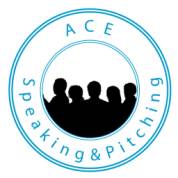Engaging with your audience is a crucial aspect of public speaking, presentations, and any form of communication. One of the most challenging yet rewarding parts of this engagement is handling questions and objections from your audience. Whether you’re speaking at a conference, pitching an idea, or leading a meeting, your ability to effectively address questions and objections can greatly impact your credibility and the success of your message.
- Prepare Thoroughly
The foundation for handling questions and objections effectively starts long before you step onto the stage or into the meeting room. The more you know about your topic, the more confidently you can address questions that come your way. Anticipate potential objections and questions, and prepare well-researched and well-thought-out responses in advance. This proactive approach will not only boost your confidence but also help you deliver accurate and comprehensive answers.
- Active Listening
When a question or objection arises, it’s essential to actively listen to the person speaking. Pay attention not just to their words, but also to their tone and body language. This will give you valuable insights into their concerns and emotions, allowing you to tailor your response accordingly. Active listening demonstrates respect and genuine interest in their perspective, fostering a positive environment for meaningful dialogue.
- Stay Calm and Composed
Receiving a challenging question or objection can catch you off guard, but it’s crucial to remain calm and composed. Take a deep breath before responding, pause for a moment to gather your thoughts and formulate a thoughtful response. Avoid becoming defensive or confrontational, as this can escalate the situation – your demeanour speaks volumes about your professionalism and confidence.
- Repeat and Clarify
To ensure you fully understand the question or objection, consider paraphrasing it back to the person. This not only demonstrates your attentiveness but also allows the person to clarify their point if needed. Sometimes, misunderstandings can arise from miscommunication, and by repeating and clarifying the concern, you show that you are genuinely interested in addressing it accurately.
- Acknowledge and Empathise
Acknowledging the person’s question or objection shows respect for their perspective. Even if you disagree, acknowledging their point of view validates their concerns. Additionally, demonstrating empathy can help diffuse tension and create a more conducive atmosphere for discussion. Phrases like “I understand where you’re coming from” or “That’s a valid concern” can go a long way in building rapport.
- Provide Well-Structured Responses
Craft your responses in a clear and concise manner. Break down complex concepts into simple terms, and use relevant examples to illustrate your points. Avoid jargon that might confuse your audience further. If you’re addressing multiple aspects of a question or objection, consider organising your response into distinct points to ensure clarity and coherence.
- Use Visual Aids
Visual aids such as diagrams, graphs, or charts can be incredibly effective in clarifying complex concepts or data-driven objections. A well-designed visual can often convey information more efficiently than words alone. Integrating visuals into your response can enhance understanding and help you make your point more convincingly.
- Pivot to Your Message
While addressing questions and objections, don’t lose sight of your core message. Once you’ve provided a satisfactory response, gently pivot the conversation back to the main topic or key points you want to convey. This keeps the discussion on track and ensures your message isn’t overshadowed by individual concerns.
- Encourage Open Dialogue
Encourage a culture of open dialogue by inviting questions and objections throughout your presentation. Let your audience know that their input is valued and that you’re open to hearing diverse perspectives. When people feel their opinions are welcomed, they are more likely to engage constructively and ask thoughtful questions.
Handling questions and objections from your audience is an opportunity to showcase your expertise, adaptability, and communication skills. By preparing diligently, listening actively, and responding thoughtfully, you can turn potentially challenging situations into moments of meaningful interaction.

